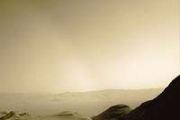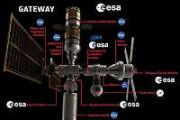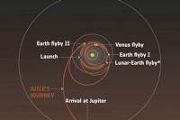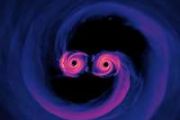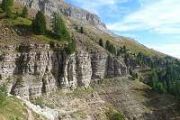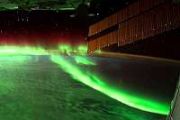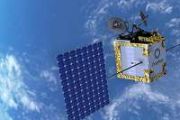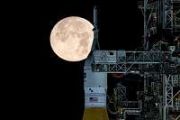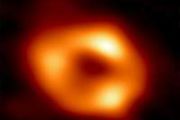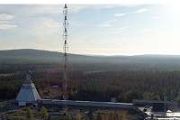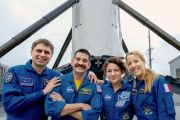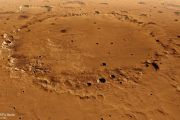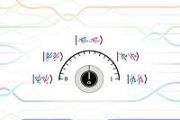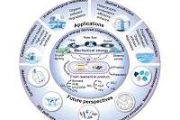
Copernical Team
Unravelling the mystery of brown dwarfs
 Brown dwarfs are astronomical objects with masses between those of planets and stars. The question of where exactly the limits of their mass lie remains a matter of debate, especially since their constitution is very similar to that of low-mass stars. So how do we know whether we are dealing with a brown dwarf or a very low mass star?
An international team, led by scientists from the Unive
Brown dwarfs are astronomical objects with masses between those of planets and stars. The question of where exactly the limits of their mass lie remains a matter of debate, especially since their constitution is very similar to that of low-mass stars. So how do we know whether we are dealing with a brown dwarf or a very low mass star?
An international team, led by scientists from the Unive How disorderly young galaxies grow up and mature
 Using a supercomputer simulation, a research team at Lund University in Sweden has succeeded in following the development of a galaxy over a span of 13.8 billion years. The study shows how, due to interstellar frontal collisions, young and chaotic galaxies over time mature into spiral galaxies such as the Milky Way.
Soon after the Big Bang 13.8 billion years ago, the Universe was an unruly
Using a supercomputer simulation, a research team at Lund University in Sweden has succeeded in following the development of a galaxy over a span of 13.8 billion years. The study shows how, due to interstellar frontal collisions, young and chaotic galaxies over time mature into spiral galaxies such as the Milky Way.
Soon after the Big Bang 13.8 billion years ago, the Universe was an unruly Collins Aerospace to provide an Earth-like atmosphere for future travelers heading into orbit
 Collins Aerospace has been awarded a $2.6 million contract by an undisclosed customer for Environmental Control and Life Support Systems (ECLSS) that will support a mission to establish a privately owned and operated orbital outpost in low Earth orbit.
The ECLSS is a suite of technologies that enable livable conditions as low as 250 kilometers above Earth's surface. The ECLSS includes air
Collins Aerospace has been awarded a $2.6 million contract by an undisclosed customer for Environmental Control and Life Support Systems (ECLSS) that will support a mission to establish a privately owned and operated orbital outpost in low Earth orbit.
The ECLSS is a suite of technologies that enable livable conditions as low as 250 kilometers above Earth's surface. The ECLSS includes air Space pens, pencils, and how NASA takes notes in space
 The Space Pen has captured the American imagination in more ways than one. It's appeared repeatedly in pop culture and even worked as a plot device in a "Seinfeld" episode titled "The Pen," and in 2021 was inducted into the Space Technology Hall of Fame. It's also the subject of a myth that the space agency spent millions to invent a pen that can write in zero gravity, while cosmonauts simply us
The Space Pen has captured the American imagination in more ways than one. It's appeared repeatedly in pop culture and even worked as a plot device in a "Seinfeld" episode titled "The Pen," and in 2021 was inducted into the Space Technology Hall of Fame. It's also the subject of a myth that the space agency spent millions to invent a pen that can write in zero gravity, while cosmonauts simply us Robotic arm to help astronauts will head to space station
 Part of a robot that could help perform routine tasks for astronauts is among the cargo on SpaceX's planned launch Saturday to the International Space Station from Florida.
Tokyo-based GITAI Japan is developing the S1 robotic arm to work in space much like industrial robots work on Earth.
Liftoff of the Falcon 9 rocket carrying the arm, supplies and science experiments is planned for
Part of a robot that could help perform routine tasks for astronauts is among the cargo on SpaceX's planned launch Saturday to the International Space Station from Florida.
Tokyo-based GITAI Japan is developing the S1 robotic arm to work in space much like industrial robots work on Earth.
Liftoff of the Falcon 9 rocket carrying the arm, supplies and science experiments is planned for Mystery investor orders life support system for private space station
 The billionaire space race formally kicked off last month after companies owned by Virgin Group CEO Richard Branson and Amazon chairman Jeff Bezos sent the men soaring to the edge of space. Critics have viciously attacked the billionaires for bringing a dystopian sci-fi vision of the future one step closer to reality.
Raytheon Technologies subsidiary Collins Aerospace has confirmed that it
The billionaire space race formally kicked off last month after companies owned by Virgin Group CEO Richard Branson and Amazon chairman Jeff Bezos sent the men soaring to the edge of space. Critics have viciously attacked the billionaires for bringing a dystopian sci-fi vision of the future one step closer to reality.
Raytheon Technologies subsidiary Collins Aerospace has confirmed that it Astra aborts small-rocket launch for Space Force from Alaska
 California-based Astra Space, a relatively new rocket company, aborted the launch of its first payload, an experiment for the U.S. Space Force, from Alaska on Friday.
The company did not explain immediately the reason for the abort at 5:45 p.m. EDT on a livestream provided by space media publication NASAspaceflight.com.
The launch window stretches to Sept. 11 at the Pacific Space
California-based Astra Space, a relatively new rocket company, aborted the launch of its first payload, an experiment for the U.S. Space Force, from Alaska on Friday.
The company did not explain immediately the reason for the abort at 5:45 p.m. EDT on a livestream provided by space media publication NASAspaceflight.com.
The launch window stretches to Sept. 11 at the Pacific Space Two experiments to help humans "go farther / stay longer" in space
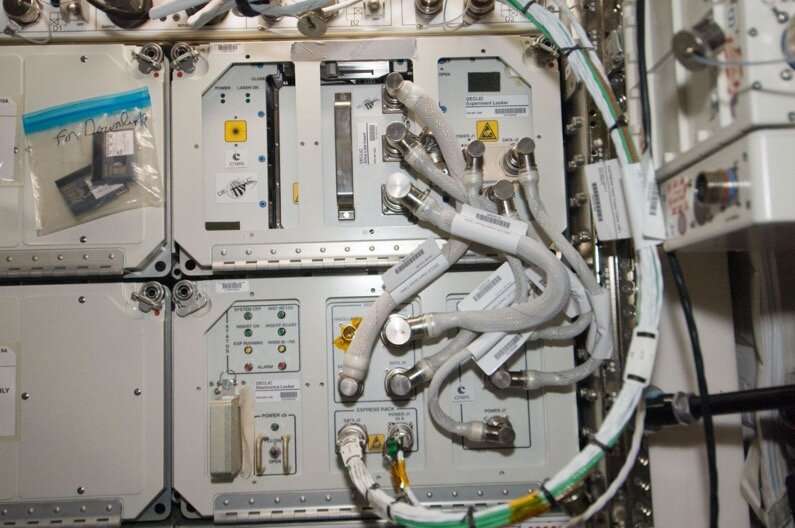
When the Space X23 rocket launches on August 28th to resupply the International Space Station, it will carry two experiments designed to sustain humans as they go farther and stay longer in deep space: A physical science investigation known as DEvice for the study of Critical Liquids and Crystallization—Directional Solidification Insert-Reflight (DSI-R), and a space biology experiment known as the Advanced Plant EXperiment-08 (APEX-08).
While DSI-R's full title may be long, its purpose is succinct: How can material scientists make metal alloys stronger, and last longer under various gravity conditions? The answer may lie in a series of computational models that researchers hope to refine as a result of this experiment. Dr. Rohit Trivedi, a senior scientist at Ames Laboratory and a professor of materials science and engineering at Iowa State University in Ames Iowa is the principal investigator: Dr. Alain Karma, a professor of physics at Boston's Northeastern University is the Co Investigator.
Join our online event: Galileo Second Generation Industry Day on 7th September
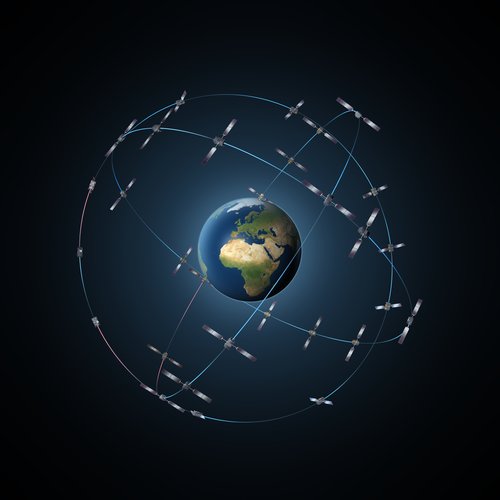
As work proceeds on Europe's Galileo Second Generation satellites, the European Space Agency is pleased to announce the Galileo Second Generation Industry Day 2021 online event on Tuesday 7 September.
Week in images: 23 - 27 August 2021
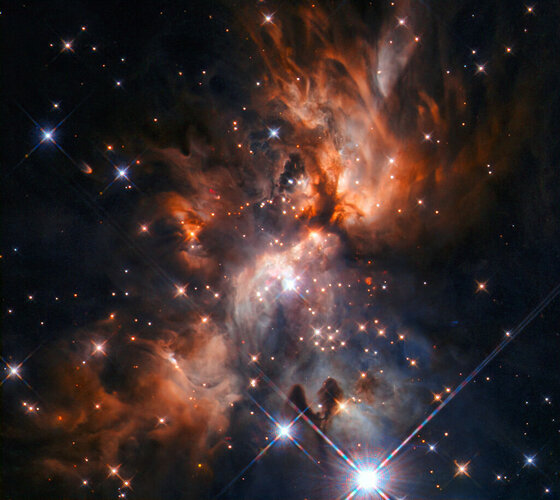
Week in images: 23 - 27 August 2021
Discover our week through the lens

